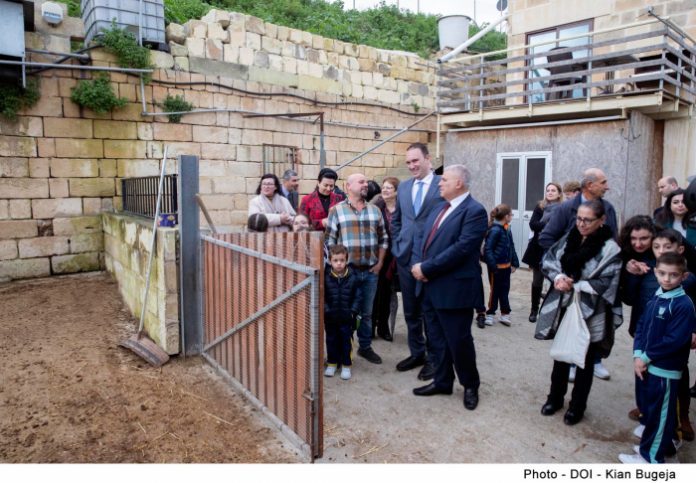The Minister for Agriculture, Fisheries and Animal Rights Anton Refalo together with the Minister for Education, Sport, Youth, Research and Innovation Clifton Grima, launched the first edition of the Let’s Talk Farming program, which is aimed at promoting the agriculture and food production sectors in the primary schools of Malta.
In a news conference it was explained how the ultimate goal of this project is to educate and increase awareness among our little ones about different food systems and food producers such as farmers and -Maltese and Gozitan villagers. This program covers many themes such as how food is produced, who produces it, the jobs associated with farming, the role of farming in protecting the countryside, the impact of climate on farming and the protection of animals. The program will also look at the benefits of responsible food consumption and the need to limit food waste.
Minister Anton Refalo reiterated the importance of a program like this that will expose the work of farmers and villagers and explained how the students will be able to appreciate more the work that is done so that they can eat dishes with fresh ingredients and he built me Here he announced that for this first edition of this program it is expected to reach 25 primary schools with various representation from state, church and private schools. This will mean that 5000 students will benefit from the program.
Minister Clifton Grima said “This is a program that takes our students ‘beyond the curriculum, but through which it is strengthening the learning that the students take in the classrooms. It is important to show the students the different aspects, so that while we broaden their knowledge, we are helping them in what they encounter in everyday life, as well as helping them in choosing their career.”
He praised the initiative that is widespread in schools, and said that these types of programs and initiatives continue to strengthen what is the complete education that we want to give to our students. The program will look at eight categories of activities that can be organized, including those of artistic and creative skills related to the subject, agricultural mathematics, knowledge exercises, creative thinking exercises, information sessions with -farmers and villagers themselves, educational outings, activities that involve the parents of the children and growing vegetables and fruits in schools.










